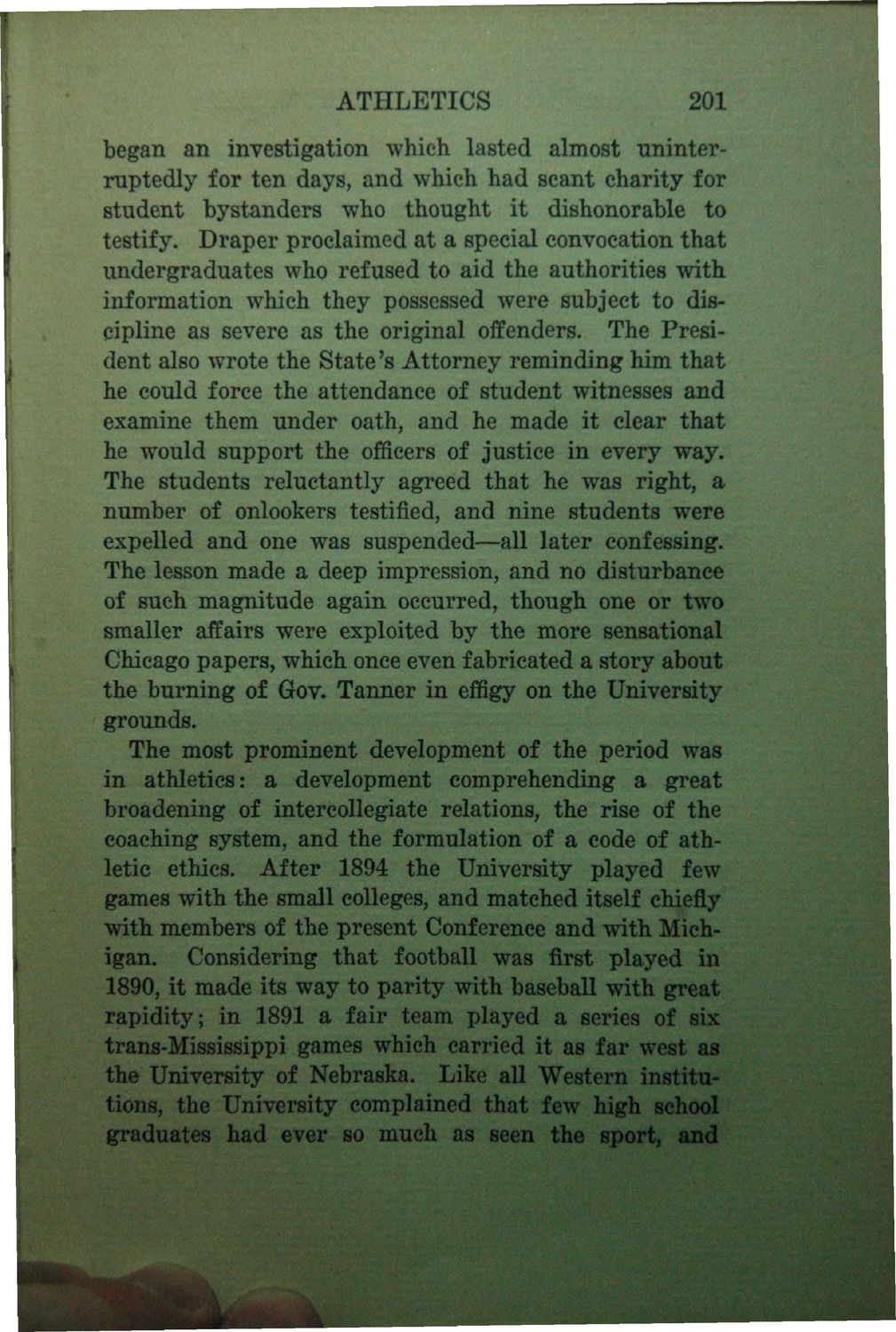| |
| |
Caption: Book - History of the University (Nevins)
This is a reduced-resolution page image for fast online browsing.

EXTRACTED TEXT FROM PAGE:
ATHLETICS 201 began an investigation which lasted almost uninterruptedly for ten days, and which had scant charity for student bystanders who thought it dishonorable to testify. Draper proclaimed at a special convocation that undergraduates who refused to aid the authorities with information which they possessed were subject to discipline as severe as the original offenders. The President also wrote the State's Attorney reminding him that he could force the attendance of student witnesses and examine them under oath, and he made it clear that he would support the officers of justice in every way. The students reluctantly agreed that he was right, a number of onlookers testified, and nine students were expelled and one was suspended—all later confessing. The lesson made a deep impression, and no disturbance of such magnitude again occurred, though one or two smaller affairs were exploited by the more sensational Chicago papers, which once even fabricated a story about the burning of Gov. Tanner in effigy on the University grounds. The most prominent development of the period was in athletics: a development comprehending a great broadening of intercollegiate relations, the rise of the coaching system, and the formulation of a code of athletic ethics. After 1894 the University played few games with the small colleges, and matched itself chiefly with members of the present Conference and with Michigan. Considering that football was first played in 1890, it made its way to parity with baseball with great rapidity; in 1891 a fair team played a series of six trans-Mississippi games which carried it as far west as the University of Nebraska. Like all Western institutions, the University complained that few high school graduates had ever so much as seen the sport, and
| |